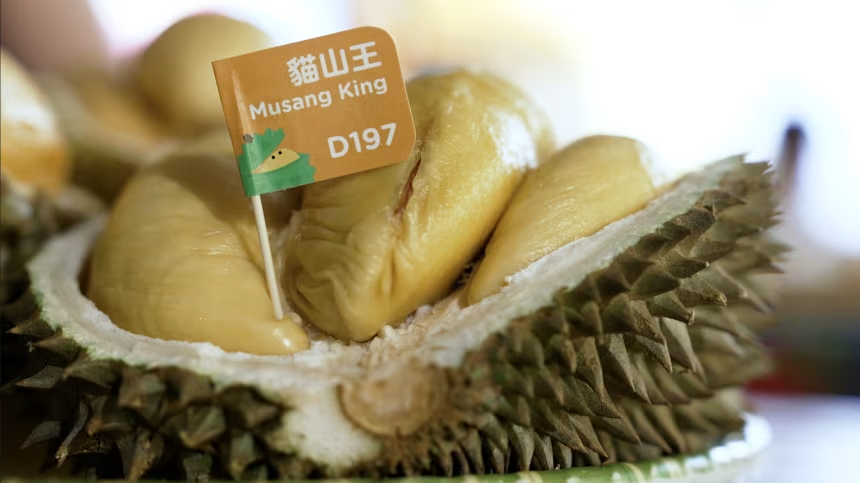Durian, long celebrated as the king of fruits in Southeast Asia, is undergoing a transformation that is turning Malaysia into a rising star on the global stage. Once enjoyed mostly in local markets, the creamy fruit is now being exported fresh to China, signaling a shift from a regional delicacy to an international luxury product.
Unlike Thailand, which leads in global durian exports by volume, Malaysia is carving out a niche for premium quality. Varieties such as Musang King, Black Thorn, and D24 are known for their rich flavor and are now fetching premium prices abroad. With over 200 varieties cultivated across the country, Malaysia is positioning itself not as the largest producer but as the home of the world’s finest durians.
This surge in demand has been boosted by recent trade agreements that allow Malaysia to export fresh durians directly to China. Previously, only frozen or processed fruit could be sent, but the new deal has opened the doors for millions of Chinese consumers eager to taste the fruit in its original form. CNN’s Marketplace Asia recently highlighted this trend, pointing to Malaysia’s innovation in storage, logistics, and branding as key drivers of growth.
However, the rapid expansion comes with challenges. Rising global demand has fueled illegal plantations in Malaysia’s Pahang state, where thousands of durian trees have been planted on protected land. Authorities have begun cracking down, uprooting trees and warning that environmental sustainability must not be sacrificed for profit. This conflict illustrates the delicate balance between economic opportunity and environmental responsibility.
Despite these setbacks, companies like Top Fruits are leading the way in creating a sustainable and innovative durian ecosystem. From carefully managed orchards to flash-frozen pulp and downstream products, they are ensuring that Malaysia’s durian industry can scale while maintaining quality and protecting the environment.
Malaysia’s durian story is no longer just about a fruit. It is about heritage, innovation, and economic potential. By focusing on premium varieties, sustainability, and international partnerships, the country is turning the king of fruits into a global luxury brand that represents both cultural pride and modern ambition.


